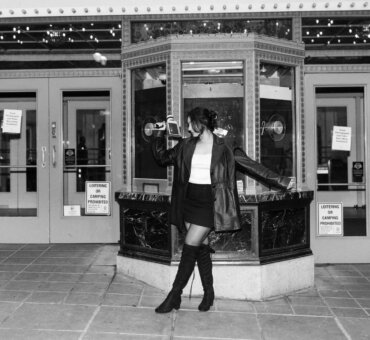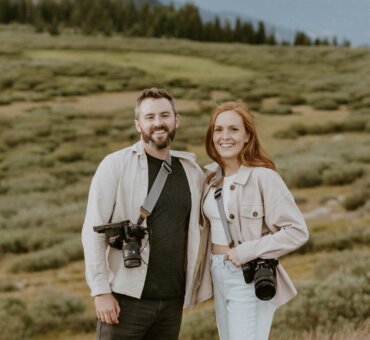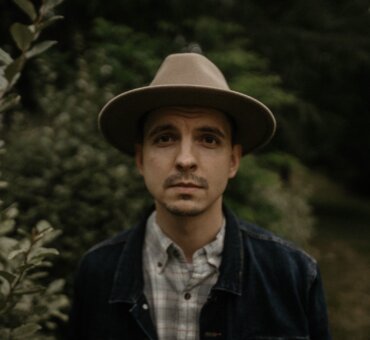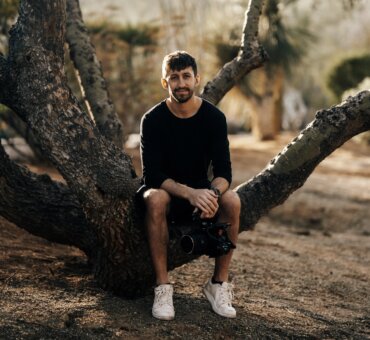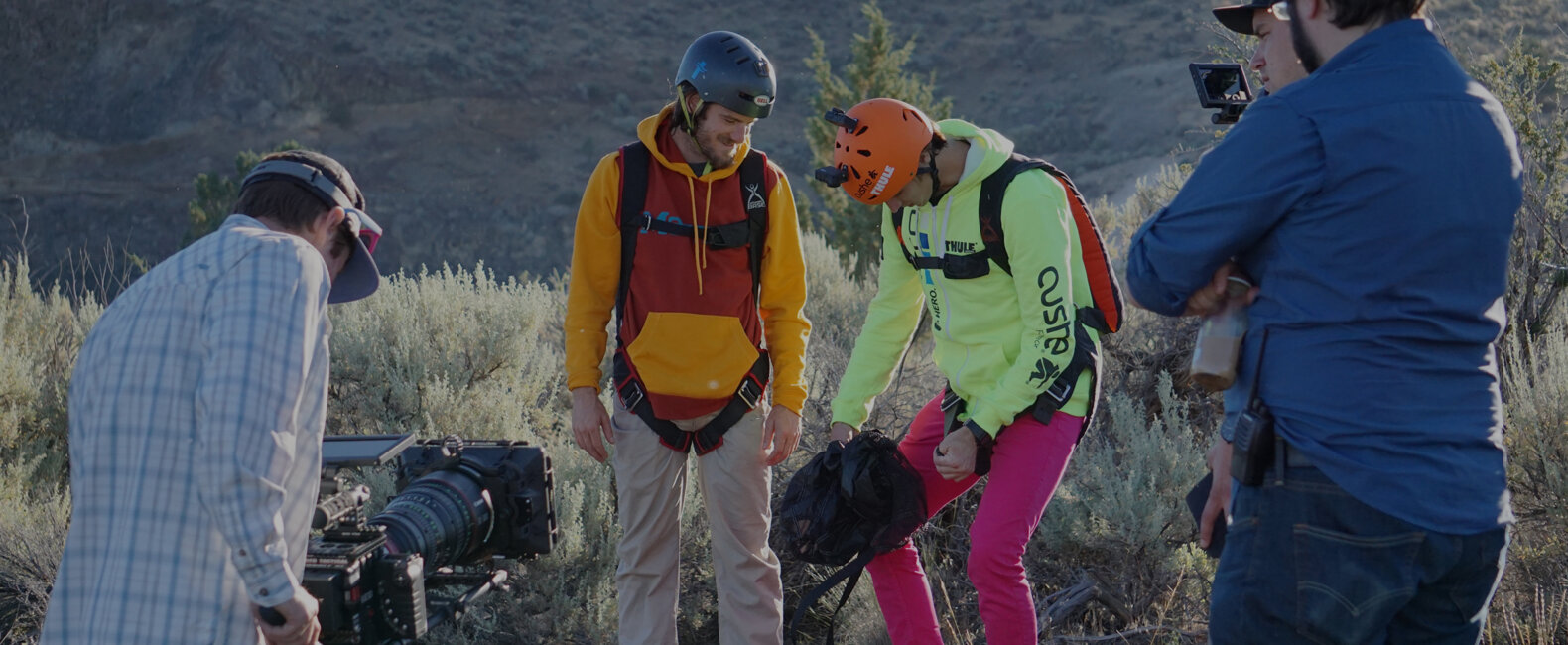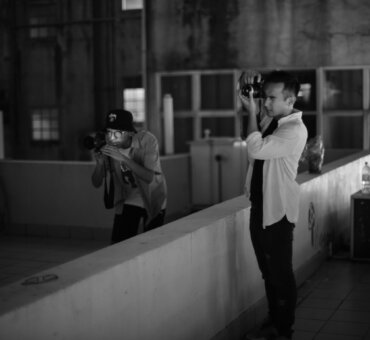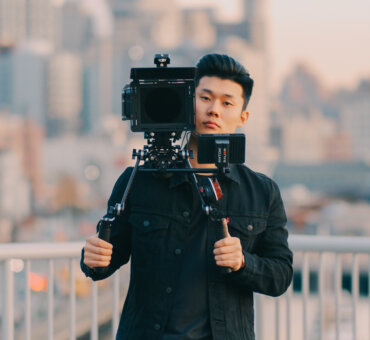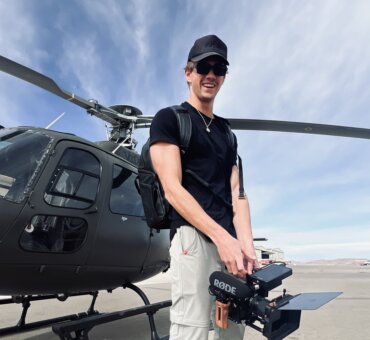“Ignorance is bliss,” Isaac Testerman says. “Everything we did was taking the bull by the horns, not knowing if what we were doing was the best way to go about it. We were just doing things the best we could.” After making his first short film with zero filmmaking know-how, Isaac went on to cofound Delve, one of Facebook’s lead creative agencies. Now, seven years later, what Isaac and his team lack in formal training, they make up for with gusto and experience.
One of their latest projects, a launch video for Facebook Live, features daredevil public personality Matthias live-streaming a BASE jump. And it’s accompanied by a custom track by Musicbed’s very own Tony Anderson.
We talked with the Delve team about the project, their history, and the unexpected virtue of not knowing what you’re doing.
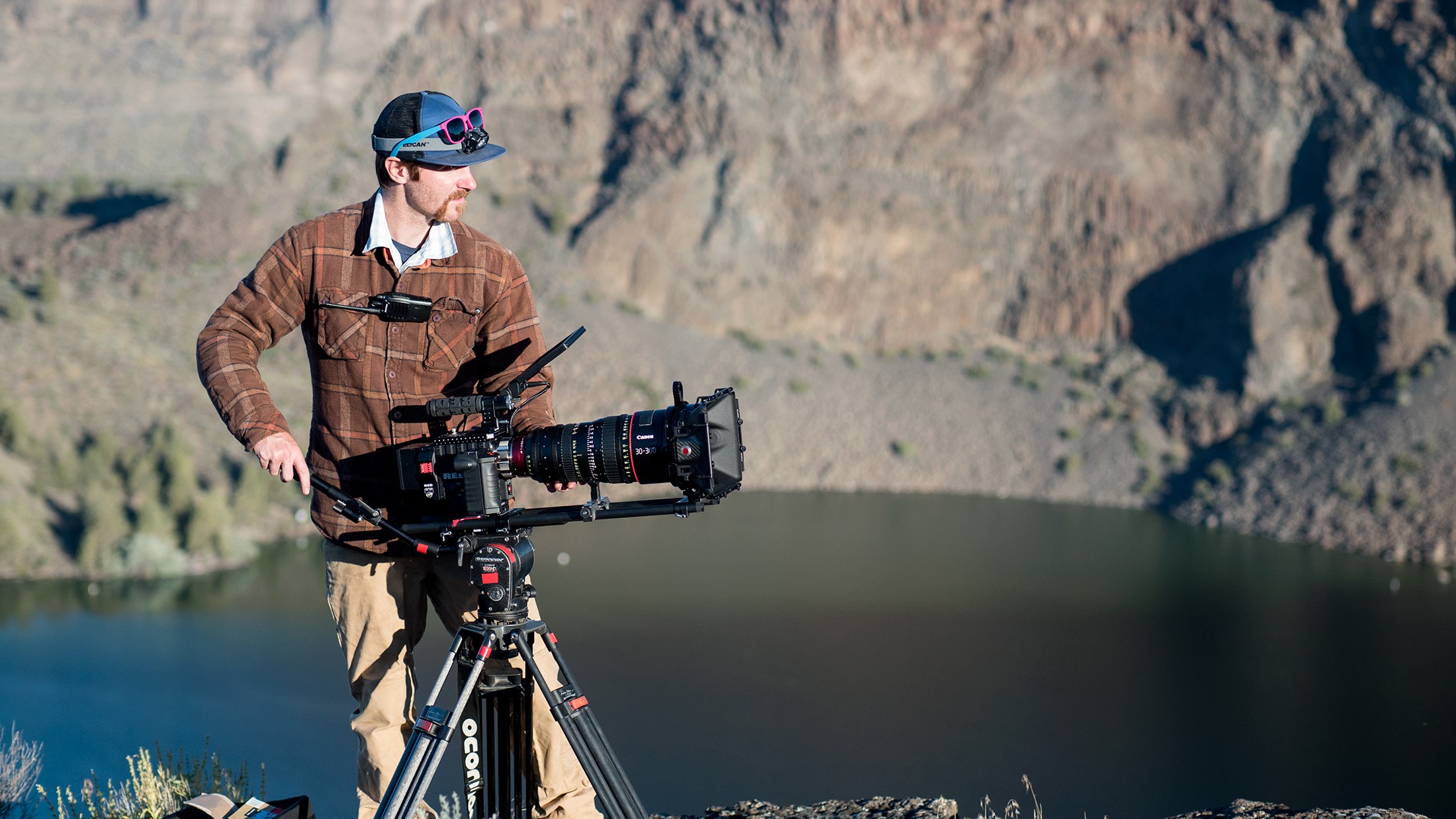
Things don’t have to be done a certain way. You don’t have to hit all the steps. It can be very organic.
MB: Where are you guys?
Eli Odegaard: We’re in Bend, Oregon. If you take your finger and point right in the center of the state, you’ll hit Bend. It’s about two and a half hours southeast of Portland.
How long have you guys been working together?
Isaac Testerman: Eli and I have been together since we started in film about nine years ago.
Eli: I was 18. I’m 25 now. I officially became part of Delve about a year and a half ago, but Isaac founded Delve when — seven years ago now?
Isaac: Yeah, I founded Delve seven years ago with one of my best friends, Nate Salciccioli. We didn’t have any formal training whatsoever. Nate saw the video game Myst on my shelf, and we started wondering why no one had made a Myst movie. We decided to do a short film, which was our first foray into film.
Eli: I randomly met Isaac and Nate at a barbeque. They were talking about making this video. I had no idea what to do with my life, so I was like, “Hey, that sounds cool.” And Isaac was like, “I just bought a camera. Want to learn how to use it?”
Isaac: We shot that short film, and it ended up getting us the rights to the entire Myst property. Hulu is making it into a 10-episode series.
Whoa!
Isaac: Things have been taking off the last couple years. It’s been really fun.
How did this Facebook video come about?
Isaac: We’re the creative agency for Facebook. We do most of their product launches, product demos, and a lot of branding campaigns for them. We’ve been working with Facebook for about three years now. They saw one of our videos on Vimeo and contacted us. This was back when they had no branding, no creative department. None of that had developed yet. So we came on and it was a good partnership. We’ve kind of grown up with Facebook as one of their lead creative agencies.
How did you guys come up with the concept for the Facebook Live video?
Isaac: The Live video is really funny because initially they came to us and were like, “Hey, we have five weeks to get a product launch video done. We want it to be live action. It’s for this product called Live where celebrities and public figures can live-stream themselves. What can you guys come up with?” So we started throwing ideas at them. All of the ideas involved different public figures and celebrities, and they were like, “No, we can’t get any of that. You’re going to have to create a scenario yourself.”
So then we got the idea to use Matthias Giraud, a BASE jumper. He’s one of Wes Coughlin’s connections — our cinematographer. Matthias is an extreme sports athlete in the Bend area. He has this crazy, ridiculous personality, and he’s already a public figure. He even has a verified public figure Page on Facebook. It was a good fit, and we were like, “What if he live-streamed a BASE jump? That would be pretty dope.” Eli thought it was a terrible idea. He was like, “We’ll never do BASE jumping. We’re not going to do that.”
Eli: Hey, in my defense…
Isaac: We brainstormed probably 7 to 10 other scenarios and threw them to the client, and they were like, “Oh, we really love the BASE jumping one. Let’s do that.” So that’s how the concept came about.
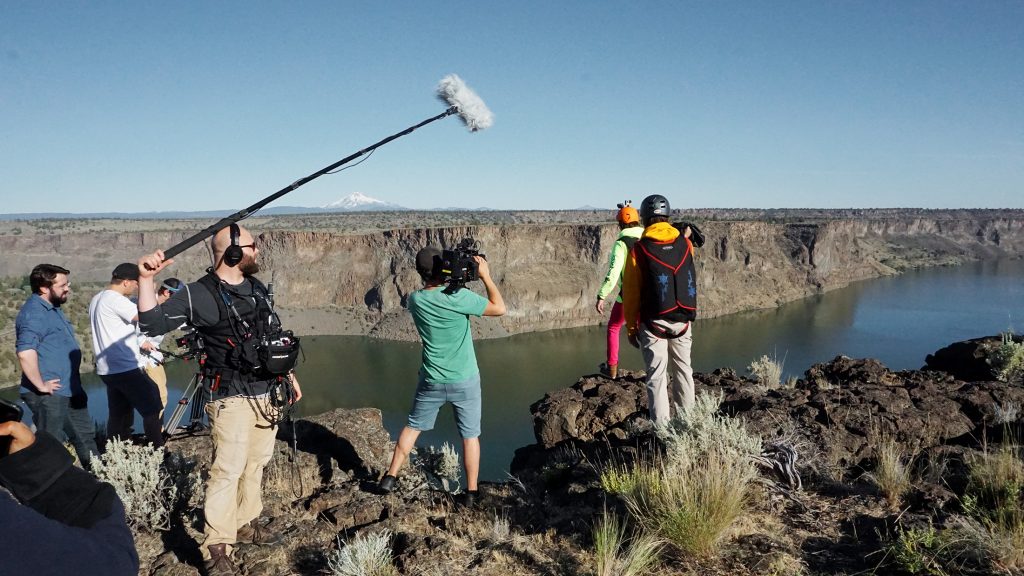
What were some of the other scenarios?
Isaac: We threw around different ideas about a band in a recording studio, someone on a movie set, an actor in his trailer broadcasting to his fans. The problem was the whole point of the video was to highlight the fact that celebrities can use it, so it would have been strange to use a fake celebrity. Matthias was the perfect fit.
Was he pretty open to it?
Eli: Oh yeah. Wes, do you want to give some background on Matthias?
Wes Coughlin: Yeah, Matthias and I have worked together for the past three years making films. He’s both an athlete and a personality. Since we both knew the area, a BASE jump would be pretty simple for us to do, and pretty fast.
So you guys just took him to a cliff and threw him off?
Eli: Well, what’s cool about being in Central Oregon is we shot this about 30 minutes away from our office, on the edge of a lake. Matthias has done a lot of BASE jumping around here, so he knew four or five good spots. We took a lot of time to figure out the best place to shoot this, the safest place.
Was production pretty quick?
Eli: Well, the tricky part was we were trying to shoot golden hour morning light. We had to shoot super early because of how the cliff was facing. We went out one morning, and then we went back the next day for pickup. I think we shot for probably six hours.

We’re constantly learning. We never have the right answer going into any given project.
Did he jump just one time?
Isaac: Yep. The turnaround on this project was a lot faster than normal. We spent only about half a day shooting.
Wes: Yeah, that aerial shot was scary. I’ve shot a lot of BASE-jumping aerial shots, and I usually mess them up because the jumps are so fast. So while we were shooting that morning, I was looking at the monitor like, “Please, please, please.” But it worked. It looked sick.
Why did you choose Tony Anderson for the custom score?
Isaac: We’ve known Tony for a long time. We did a piece with him four years ago for a nonprofit called The Justice Conference. He scored the track “The Father’s Heart” for that piece. We’ve been waiting for an opportunity to bring him in on something commercial, and then this project came along. We wanted him to be a part of this because he has such a cool mix of cinematic vibe but also this electronic style, which is rad. It was funny working with him on a commercial project. Because he’s such an artist, it’s not easy to constrain him into a 60-second box. Per usual, though, he knocked it out of the park.
What kinds of projects are you guys passionate about? What’s a total Delve project?
Isaac: There’s nothing better for us than to tell real human stories. Eli has such a knack and an eye and a heart for finding the human element in stories and really drawing it out. We love doing that, whether it’s mini-documentaries or feature documentaries or commercials. We want to make them into human stories. Then, on the other side of it, the scripted side, we love creating things that are fun and goofy. Like the Facebook Gamescampaign. We brought in some really good actors, did some CG. It’s always fun to build our own worlds.
Eli: Then for Wes, whenever you get a chance to throw someone off a cliff, that’s the kind of project he’s passionate about.
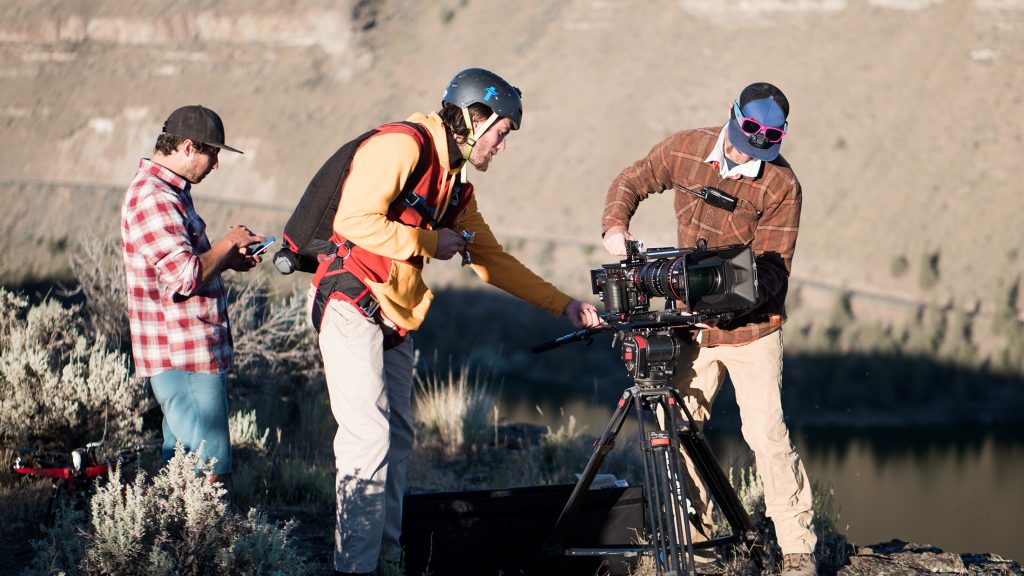
Wes: I’m the Extreme Department of Delve.
Isaac: Do we have a life insurance policy on Wes? We should have a life insurance policy.
None of you have been to film school. Do you think that’s been an advantage?
Isaac: Yes, because ignorance is bliss. Formal training can be really, really good. But I see a lot of people come out of film school scared, nervous, and already dated because of how quickly everything is moving. We came into this and we were like, Hey, let’s try to get the rights to Myst, a $1 billion property. We didn’t know that was crazy. But it worked. Everything we did was taking the bull by the horns, not knowing if what we were doing was the best way to go about it. We were just doing things the best we could. I think that gave us an advantage early on, and it continues to give us an advantage.
Things don’t have to be done a certain way. You don’t have to hit all the steps. It can be very organic. We just try to listen to people. When you get a formal education, sometimes you can get in the mind-set of This is what I know, this is what I’m going to work with.Whereas, if you don’t know any better, you’re like, “Hey, look! It’s the coolest new thing. Let’s try that!”
Eli: In this day and age, everything is available online. It’s the old adage that the best college education is a library card. We have taken that to heart. We’ve had a lot of self-education.
Isaac: I believe it’s taught us all to adapt and keep diving into things we’re afraid of and see what comes out of it. We’re constantly learning. We never have the right answer going into any given project. It’s a constant evolution.
What works about Delve?
Isaac: It’s interesting because people always say you shouldn’t go into business with your friends. But that’s exactly what we did, and we love working with each other. The camaraderie that we all have — that we’ve had for years now — it’s unique. There’s no competition among us. No one is trying to one-up anyone else. It’s all very collaborative. Which kind of goes back to our name. We always want to go deeper, to get to the next level. We never want to settle for “good.” From the very first time we picked up a camera, we were never going to settle for “good.” It has to be great. It has to be amazing. It has to be exceptional. We’re all obsessed with making things great.

Delve is living proof that vision and enthusiasm trump formal know-how. It’s no wonder their work has caught the eye of some of the biggest brands in the world. We’re proud to provide them with music, and we can’t wait to see what else they have up their sleeves.




































































